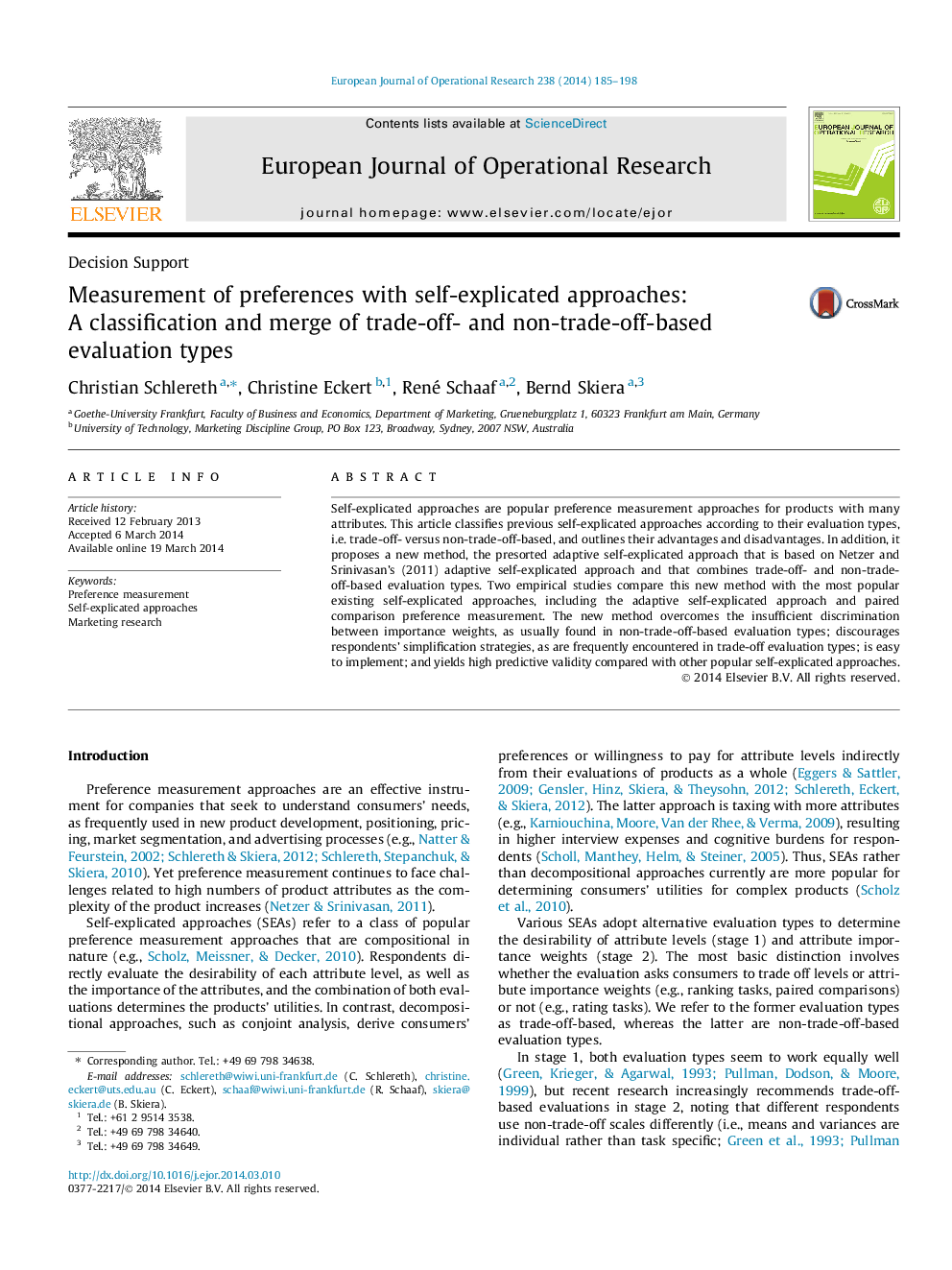| Article ID | Journal | Published Year | Pages | File Type |
|---|---|---|---|---|
| 6897301 | European Journal of Operational Research | 2014 | 14 Pages |
Abstract
Self-explicated approaches are popular preference measurement approaches for products with many attributes. This article classifies previous self-explicated approaches according to their evaluation types, i.e. trade-off- versus non-trade-off-based, and outlines their advantages and disadvantages. In addition, it proposes a new method, the presorted adaptive self-explicated approach that is based on Netzer and Srinivasan's (2011) adaptive self-explicated approach and that combines trade-off- and non-trade-off-based evaluation types. Two empirical studies compare this new method with the most popular existing self-explicated approaches, including the adaptive self-explicated approach and paired comparison preference measurement. The new method overcomes the insufficient discrimination between importance weights, as usually found in non-trade-off-based evaluation types; discourages respondents' simplification strategies, as are frequently encountered in trade-off evaluation types; is easy to implement; and yields high predictive validity compared with other popular self-explicated approaches.
Related Topics
Physical Sciences and Engineering
Computer Science
Computer Science (General)
Authors
Christian Schlereth, Christine Eckert, René Schaaf, Bernd Skiera,
